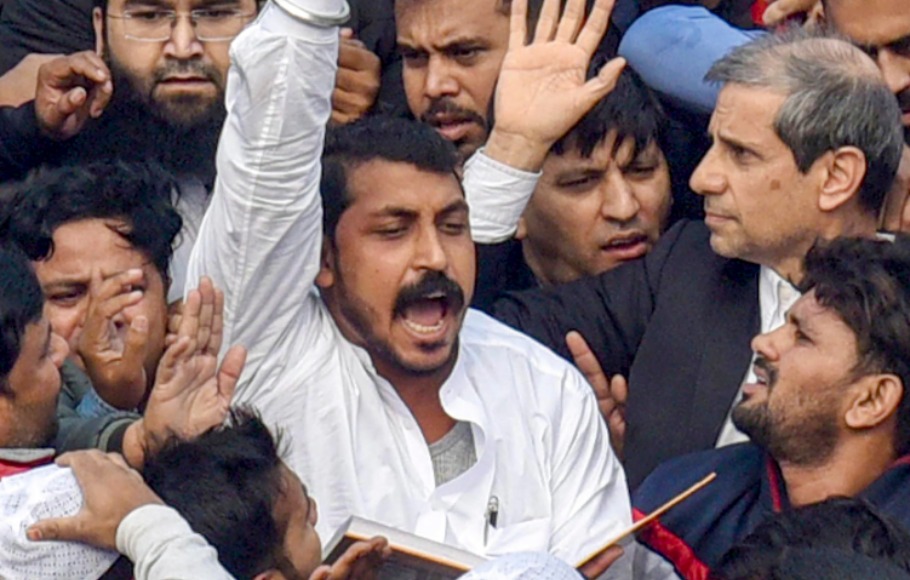
After 25 days in jail for CAA protest, court frees Bhim Army chief Azad
A Delhi court on Wednesday granted bail to Bhim Army chief Chandrashekhar Azad and has ordered him not to any protest in the national capital till February 16. He was arrested on December 21 in connection with the violence during anti-citizenship law protests in Delhi’s Daryaganj area.

A Delhi court on Wednesday (January 15) granted bail to Bhim Army chief Chandrashekhar Azad and has ordered him not to any protest in the national capital till February 16. He was arrested on December 21 in connection with the violence during anti-citizenship law protests in Delhi’s Daryaganj area.
The court further directed him not to hold any dharna in the national capital till the elections here and said “the nation cannot be exposed to anarchy”. Additional Sessions Judge Kamini Lau granted the relief to Azad on furnishing a bail bond of ₹25,000 with two sureties of like amount.
The court also said that before going to Saharanpur if Azad wants to go anywhere, including Jama Masjid in Delhi in 24 hours, police will escort him there. Azad was accused of organising a march from Jama Masjid to Jantar Mantar on December 20 against the Citizenship (Amendment) Act despite not having police permission. Subsequently, he arrested on December 21.
Also read | Bhim Army chief sent to judicial custody, bail plea rejected
A day earlier, a Tis Hazari court judge had slammed the Delhi police for arresting Azad. While hearing Azad’s bail plea, the judge had asked the public prosecutor, “Who says you cannot protest have you read the constitution?”
“You are behaving as if Jama Masjid is Pakistan. Even if it was Pakistan, you can go there and protest. Pakistan was a part of undivided India. Which law mentions that there is a prohibition on protest in front of any religious place,” the judge had said.
‘Where the mind is without fear’
While granting bail to the Bhim Army chief, the judge recited Rabindranath Tagore’s famous poem ‘Where the Mind is Without Fear’ and said citizens have a fundamental right to peaceful protest which cannot be curtailed by the State.
Additional Sessions Judge Kamini Lau said Tagore had in early 1900s, when the British followed the policy of Divide and Rule, visualised a nation where there is no fear in the minds people, education is attained by all, people are enlightened and do not create walls of discrimination.
She added however that while exercising the right of peaceful protest, it was our duty to ensure that no corresponding right of another is violated and no inconvenience was caused to anyone. She said Tagore was most relevant today.
Also read | Is Jama Masjid in Pak? Court asks cops during Azad bail plea hearing
“I am reminded of our reverend patriotic poet Rabindranath Tagore who is most relevant today. He during the colonial era in early 1900s when British followed the policy of Divide and Rule, visualised a nation where there is no fear in the minds of people and education is attained by all; people are enlightened and do not create walls of discrimination,” she said.
Tagore wanted his countrymen to be honest and thoughtful, she said. She said that in “our democratic set-up, we have a fundamental right to peaceful protest guaranteed by the Constitution, which cannot be curtailed by the State.”
“However, at the same time, our constitution strikes a fine balance between the rights and duties. While exercising our right of peaceful protest, it is our duty to ensure that no corresponding right of another is violated and no inconvenience was caused to anyone,” the judge said.
(With inputs from agencies)


